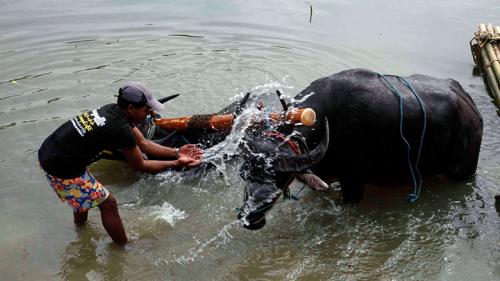Myanmar Intensifies Economic Policy Reform Agenda to Address Emerging Risks and Achieve Inclusive, Sustained Growth
At a high level gathering here on July 12, Myanmar Government officials and World Bank representatives discussed the government’s commitment to an ambitious reform agenda to ensure the country’s inclusive and sustained growth. Organized by the Ministry of Planning and Finance and the World Bank Myanmar, the conversation focused around constraints related to policy consistency and implementation and the best ways to address them.

Central to the conversation was the Myanmar Sustainable Development Plan, which is currently being finalized and sets out a comprehensive approach to push for immediate reforms, crucial to boost Myanmar’s economic performance.
“As stated in the Myanmar Sustainable Development Plan, economic stability and strengthened macroeconomic management are an indispensable prerequisite for peace, security and other goals of sustainable development,” said H.E. Maung Maung Win, Deputy Minister of the Ministry of Planning and Finance. “The MSDP is well timed to mobilize all necessary resources to pursue this goal of bringing stability to our nation.”
The event provided a forum to exchanges ideas around recent economic analysis and policy recommendations laid out in the World Bank’s May 2018 Myanmar Economic Monitor (MEM), entitled “Growth Amidst Uncertainty.”
According to the MEM, Myanmar’s economy experienced a broad-based increase in real GDP growth, from 5.9 percent in 2016/17, to 6.4 percent in 2017/18. The report indicates a favorable outlook with growth expected to increase to 6.8 percent in 2018/19 and other economic variables set to improve, but warns about downside risks, including uncertainty in global trade and commodity prices.
“Myanmar has the potential to grow even faster than its current rate,” said Gevorg Sargsyan, World Bank Myanmar Head of Office. “The MSDP provides the framework to realize this potential by building human and physical capital and by harnessing this nation’s innovative and creative power, including by mobilizing a dynamic private sector.”
The MEM also indicates that some risks have intensified, related to concerns over the slow pace of reforms and limited progress in addressing the humanitarian crisis in the Rakhine State. In addition, there remain perceptions of bureaucratic inefficiency, centralized decision-making, and emerging protectionism.
Moderated by Dr. U Khin Maung Nyunt, Senior Research Fellow at the Myanmar Development Institute, the discussion allowed meaningful exchanges among a wide range of senior government officials from various ministries and agencies.
Source: World Bank
- 291 reads
Human Rights
Fostering a More Humane World: The 28th Eurasian Economic Summi

Conscience, Hope, and Action: Keys to Global Peace and Sustainability

Ringing FOWPAL’s Peace Bell for the World:Nobel Peace Prize Laureates’ Visions and Actions

Protecting the World’s Cultural Diversity for a Sustainable Future

Puppet Show I International Friendship Day 2020

